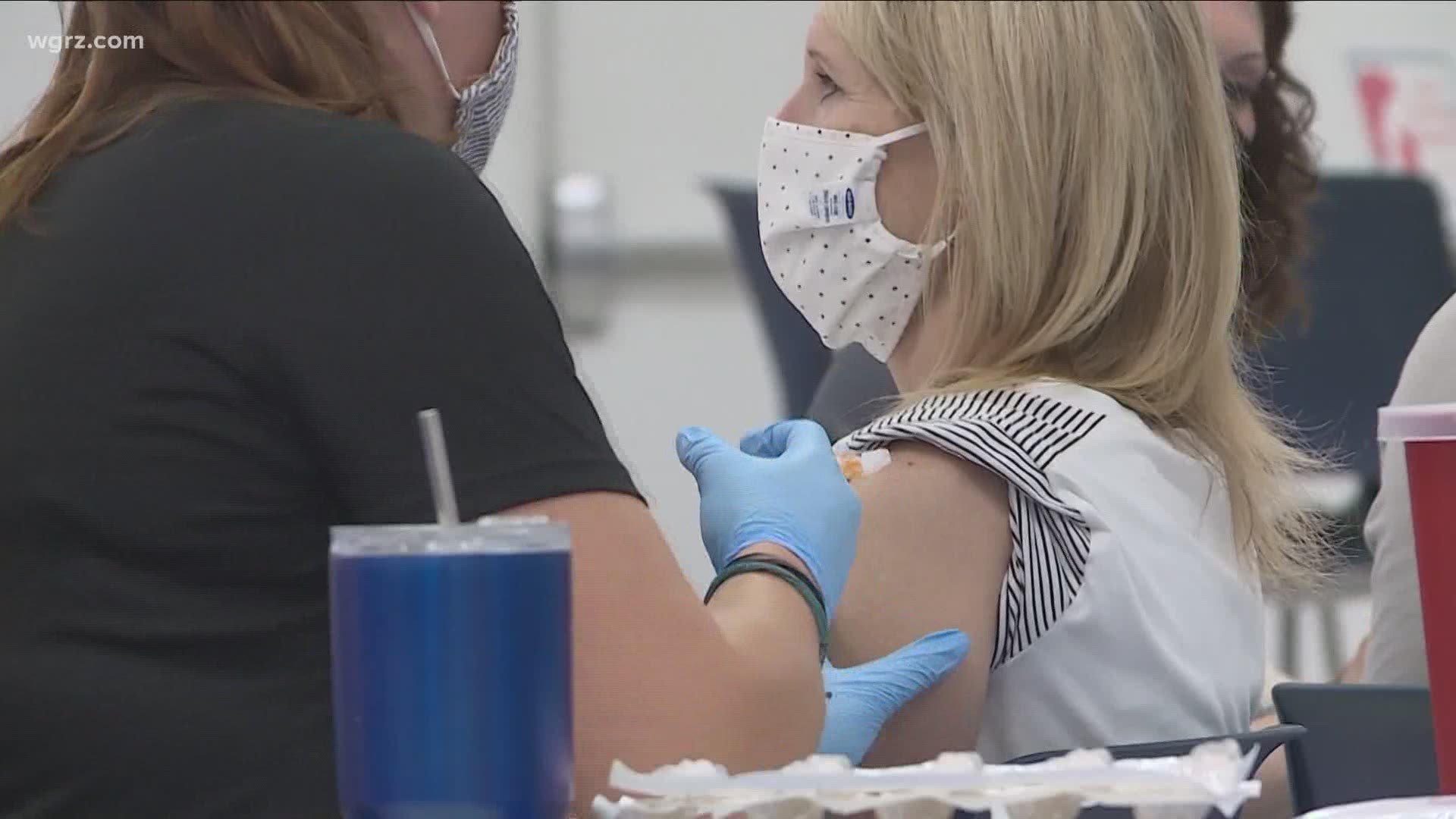BUFFALO, N.Y. — New York Governor Andrew Cuomo claims the state has used 90 percent of the first-round doses of COVID-19 vaccine that it has been sent by the federal government (the CDC puts the number at closer to 65 percent).
However, according to the state’s own COVID vaccine tracker, when it comes to the percentage of second round doses received versus administered, the number drops to 42 percent.
We’ve asked the state’s health department since last week to explain why.
On Monday, one of its spokespersons got back to us, but only said that we can expect the margin to narrow soon without explaining what may be behind the gap.
What if We….
In the wake of first round clinics having to be cancelled for what the state says is a lack of supply, some have suggested that the state use more of its stockpile of second round vaccine in order to get more people their initial vaccination.
The governor acknowledged that he has heard that call but insists the federal government won’t allow for that.
“I have local governments saying to me that I should do this, but I can’t do it unless the federal government say I can,” Cuomo said.
Others Not Waiting
While Cuomo insists that the state cannot use second round doses to administer first round shots without the permission from Washington, Colorado Gov. Jared Polis did just that a few weeks ago when he ordered hospitals and others to stop holding back doses for current patients’ second shots.
In addition, Andy Slavitt, a senior advisor to President Biden’s COVID response team on Monday said health-care providers should not be holding back vaccine doses, because that practice is resulting in the cancellation of appointments and preventing some Americans from getting their first shots (which is precisely what’s been happing in New York).
A governor’s spokesman did not answer a question sent to him Monday inquiring whether the state was holding back second round doses in order to ensure there is enough for those who’ve already gotten their first shot, something Slavitt acknowledged was an understandable concern.
"We completely understand that this has been a direct result of the lack of predictability many states and providers have had regarding how many doses that they would receive," Slavitt said.
Cuomo Remains Cautious
Despite the impending approval of a new vaccine from Johnson and Johnson, which only requires a single dose and will increase the supply of vaccines, and a pledge by the Biden administration that the federal government will be providing a continual three-week window in the vaccines that will be shipped, Cuomo remains concerned about the predictability of future supplies.
“You better be very certain of what supply you have and what production you are going to have if you start using second doses for first dosages," said Cuomo, who among U.S. governors has been among the most cautious in his pandemic response.
Indeed, if supplies don’t come through as the federal government hopes, then governor’s like Colorado’s Polis - whose action increased the number of Coloradans receiving their first doses - may have to halt first round vaccine clinics in the future, in order to get the needed second doses into the arms of those who’ve already received their first vaccination.
Another Approach With Possible Risk
Shots made by Pfizer Inc. with BioNTech SE and by Moderna Inc. were designed and tested with two inoculations, 21 or 28 days apart.
However, with the CDC now saying the follow-up doses could be given up to six weeks later, this has caused some nations, like France and England, to double the time between doses in order to boost their vaccination programs.
Dr. Anthony Fauci, director of the U.S. National Institute of Allergy and Infectious Diseases, noted the schedules for the vaccines were established through clinical trials, and cautioned that deviating from those could impact their efficacy, especially against new strains of the virus.

